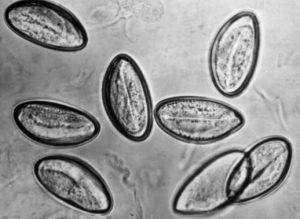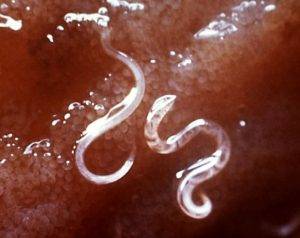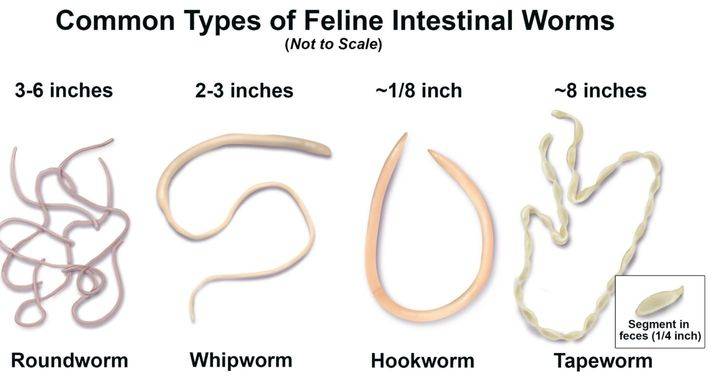How to know if your baby or toddler has worms?
Worms infestation: Infestations of worms in babies' intestines are very common. Chances are the baby could have got it from someone else, or when walking around barefoot on infected soil, playing in contaminated water, or from ingestion of worm eggs stuck to soiled vegetables and fruits. Once this egg hatch the worm will grow and lay more as in the baby's body.
How common are worm infestations in babies and toddlers?
Worm infestations are very common and spread very easily. Though it is very difficult to know how prevalent these infections are because they often don't have symptoms and aren't reported. Various studies have estimated that one person among five living in India has at least one type of worm infestation and in young children, infestations are much more common.
There are different types of worm infestation
- Pinworms are the most common kind of worm that affect young children.
- Hookworm, roundworm, and pinworm infestation are most common in India
What are the signs/symptoms of a worm infestation?
Most worm infestations don't show symptoms. The symptoms may be so slight that they are overlooked. Depending on the type of worm or severity of infestation a child with a worm may have some common signs and symptoms. Take the child to the doctor straight away if they have any of these symptoms
- A sore or painful tummy
- Unexplained weight loss
- Irritability
- Nausea
- Blood in the stool
- Vomiting and coughing
- Itching and pain around the anus ( generally pinworm)
- Trouble sleeping because of itchiness
- Painful and frequent urination due to urinary tract infestation, more common in girls
- Internal bleeding that can lead to loss of iron and anemia,
- Malabsorption of nutrients, diarrhea, and loss of appetite
Very rarely many worms can lead to blockage of the intestine, severe tapeworm infestation can cause seizures
PICA: Eating inedible nonnutritive things ( soil, paper, chalk, stones, and so on ) can be another sign of worms
What is the common symptom of pinworm?

If the baby has pinworm, they would definitely complain of itching bottom around the opening of their anus. Check that at night time with the shine of a torch.
What is the common symptom of hookworm?

If a child is infestation by hookworm, which is itchy at the site of entry the worm in the skin can be seen. Such kids may complain of urticaria at the site of entry of worm
What are the causes of worm infestation?
Infected soil:
Infected soil is the most common way children get infected such as round won tapeworm hookworms and whipworms.
If an infected person goes to the toilet and the soil is deposited with worm eggs which then grow into Larva ( immature worms). The larvae then mature. Hookworm infestation happens due to children walking barefoot or crawling on infected soil as the Larva can penetrate the skin of the feet. Other worms get into the body when someone gets oil in their hands and under the nails and then puts their dirty hands in their mouth
Infected water areas:
Children tend to be affected the most as their immune systems are weaker than those of their adults. Some types of worms breed in water bodies which are very easily found in lakes, dams, and puddles. Playing bathing and swimming in the sea areas can cause worm infestation.
Infected or undercooked food:
Roundworm, whipworm, and hookworm eggs stay on plants and vegetables that have been grown in soil that is contaminated with human/ animal feces and has not been thoroughly washed. We can get infected by eating these vegetables.
Contact with an infected person:
If someone in contact with the baby is having worms then they can pass the infection to the baby if they don't maintain proper hygiene. Pinworms are the most common to pass in this way. Worms can remain under fingernails or unwashed hands can pass on from there to baby toys or directly into their mouth
How do worms affect a baby's development?
Worm infestations if left untreated can become severe as they can lead to intestinal bleeding. This can lead to malnutrition low weight and complications like anemia and malabsorption.
Infected children then become more vulnerable to illness as their immune systems are damaged. Infestations are the most serious ones as they lead to cysts growing in brains which are quite rare. Long-term infection can also affect a child's future physical and intellectual development, delaying growth and affecting cognitive functions, especially because it may result in anemia and malnutrition. Timely treatment can prevent this.
What should be done to check whether babies have worm infestation or not?
The best way to find out whether babies have worms is to get them checked by a doctor. Your doctor may use one of the following methods to check if your baby has a worm infestation or not.
- Stool examination: Your doctor may ask for a sample of your baby's stool. The stool sample will be sent to a lab to check for worm eggs or larvae.
- The sticky tape test: this test is done to detect threadworms and it involves sticking a tape around your baby's bottom to collect the possible worm eggs. The tape is then sent to a lab for testing
- Checking under fingernails: The Baby’s fingernails may be checked by the doctor for worm eggs
- Cotton bud swab: The nurse may run a cotton swab around your baby's bottom to check for worm eggs
How to prevent a child from getting worms?
Recently World Health Organisation (WHO) recommended that all preschool children receive regular deworming treatment. The national ministry of Health and Family Welfare of India has recommended that every child above 1year of age should get proper deworming every 6 months.
- Once your little one starts walking they are at risk of getting worms. Take your child to the pediatrician for regular check-ups and scheduled deworming treatment.
- You can do to keep in mind a few things to keep babies safe from worm infestation:
- Clean your house often and well, with a good disinfectant.
- Change baby's nappies regularly and wash your hands thoroughly afterward
- Once your child can walk get them some closed shoes make sure they wear them when they play outside to wash their hands and feet when they get home
- Keep child away from slushy play areas most sand peace in the soil take care during the monsoon when there are water logging and contaminated water-filled on the roads
- Don't let children play in or around water bodies suggest puddles potholes lakes or dams
- Make sure your child relieves herself in a clean toilet and not outside keep your toilet clean wash your baby's bottom every time she pees and poos.
- Wash your hands thoroughly afterward if your child is old enough teach them to wash their hands after going to the toilet every time
- Make sure your family wash their hands with soap and sentences before and after using the toilet and before meals
- Keep your child's nails short and clean. Worm eggs can get caught on the long fingernails spread around the house
- Always drink clean water boil or filter your drinking water
- Wash fruits and vegetables thoroughly with clean water and take special care if they were soiled
- Check that meat and fish are fresh before cooking cook meat and fish and maintain proper food hygiene
- If any caretaker or maid is looking after the baby, make sure she keeps herself clean and has short clean nails.
- Get her dewormed along with other family members
Conclusion:
Worm infestation left untreated for the longest time can affect your kid's overall physical and cognitive development. It can affect their nutritional absorption and overall immunity of the body. So, don’t take worm infestation lightly and get it treated as early as possible.
